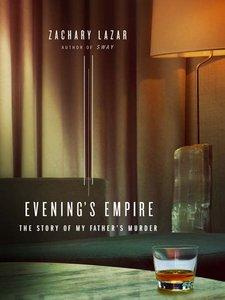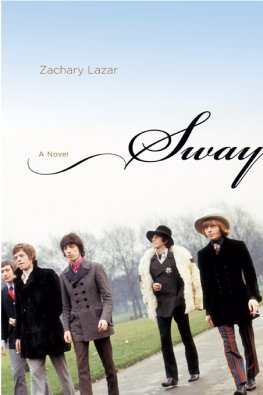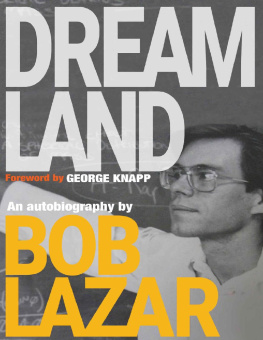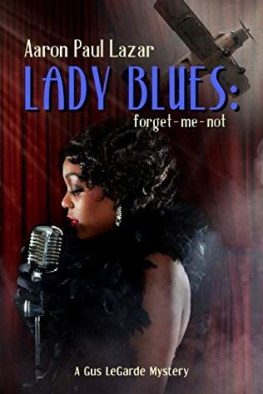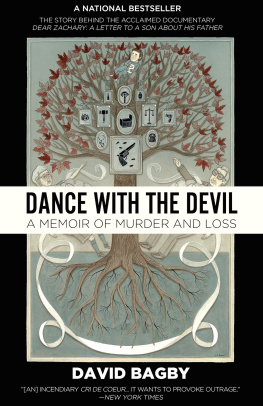
A kind of conjuration.
I am writing this sentence on June 21, 2007, almost exactly thirty-eight years after the night of the moon landing. I did not know the story of that night until a few months ago. Nine months ago, I knew almost nothing about my father at all. I am working from a stack of index cards, a time line filled out with notes taken in libraries and government agencies and in the room of my house that I use as a study. I have a bankers box full of newspaper clippings, depositions, grand jury testimony, office correspondence. I have the interviews I did with journalists and former police officers, with my parents friends and relatives, with my mother. I have anecdotes like the one about the fortune-teller, the one about the night of the moon landing. I am trying to imagine how it all happened, trying to dramatize the scattered bits of information, to understand the nuances. I dont know if anyone who knew my father will recognize this portrait Im making. This portrait is crucially distorted by the way his life ended. When his friends and loved ones knew him, they didnt know the futurethe future had not yet distorted his image. I am adhering to the final shape, the unbeautiful shape of what happened, reconstructing an old mosaic with only a few of the tiles, letting the fragments suggest what might have been in the missing spaces.
Verde Lakes, Yavapai County, 2006
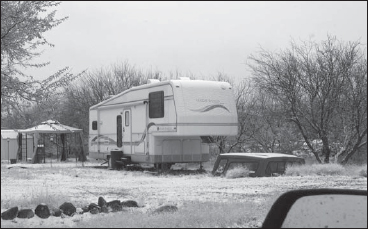
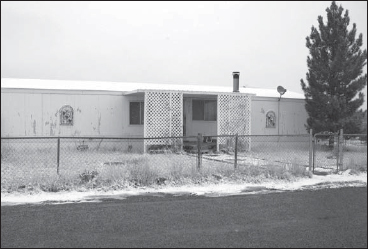
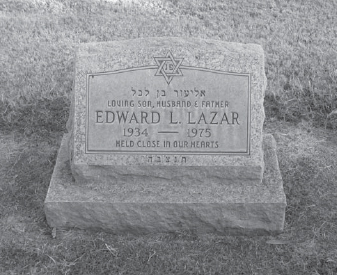

M exicosomewhere on the Pacific coast, perhaps Mazatln, not that long a flight from Phoenix. The date is easier to determine: it would have been Saturday, August 14, 1971. At a beach resort somewhere in Mexico, Ned Warren was sitting on the patio with a woman named Acquanetta Ross, waiting for his wife, Barbara, and Acquanettas husband, Jack, to come back from the concierge desk. Acquanetta Ross was dressed in a red cape, with peacock feathers in her hair, a beauty mark painted on her cheek. Like her name, her appearance was gaudy, theatrical, but her dark hair and sharp cheekbones projected a seriousness, even a toughness. She used a silver spoon to push a slice of lemon into a cup of plain hot water. She was dieting; this was part of her diet, she kept saying.
What did Jack say about the land? she asked.
He said he bought some land yesterday. He said there was a balloon payment coming up down the road and he was already worried about it.
Thats all hes talked about. I asked him why did he buy the land if he was going to worry about this balloon payment. Its really ridiculous, dont you think, these words they come up with? Balloon payment.
Id say its a pretty descriptive word, Warren said.
She stared at him with a showy disdain, blowing out smoke from her cigarette. I cant read my watch, she said. Where are they? What time is it?
Its a little after seven.
I cant stand wearing glasses. I know its vain, but I wont wear them.
She had been a B actress in Hollywood once, a star in films with titles like Captive Wild Woman, or Tarzan and the Leopard Woman. These feral roles had fallen to her because of her dark skin. For a time, her handlers had called her The Venezuelan Volcano, though in fact she was not Venezuelan but Arapaho Indian. Warren knew the story, as did most of what passed for society in Phoenix. The Indian blood was the subject of disdain, even if she and her husband, Jack, were local celebrities of a kind. Jack Rosss Lincoln/Mercury dealership sponsored a weekly horror movie that Acquanetta presented on TV, dressed in outlandish costumes. On the strength of those ads, Jack was mounting a campaign for governorlaugh, but it was Arizona. Jack Rosss brother, as Warren well knew, was married to the daughter of the most powerful man in Arizona, Barry Goldwater. There were reasons for this conversation.
I wouldnt worry about the balloon payment, he said. I have some investors over in Japan, theyre desperate for land.
Japan. Why would anyone in Japan want to buy land in Yavapai County?
Theyre Americans. Its a company that sells land to American G.I.s. Do you know how many soldiers are stationed in Japan? Korea, the Philippines?
No.
I never would have thought of it myself. Soldiers. Every one of those soldiers needs a place to invest his money.
In six months, Acquanetta Ross would deny this conversation ever happened. In six months, Jack Ross would deny the entire trip to Mexico had ever happened. Eventually, these denials would create a mystery as to how Ed Lazar had known to call Jack Ross sometime in early September 1971 about some land Ross owned in Yavapai County, land that Ed Lazar had never seen, land that perhaps no one but Jack Ross ever really saw.
My father and Warren had offices on Camelback Road, in a bland stretch of small, nondescript buildings housing garages and stores. I have what I think must be a false memory of going there as a child: a door with the words Consolidated Mortgage Corporation printed film noirstyle on its opaque glass panel, my father moving boxes of file folders through the door into the trunk of his car. Ive had this memory for many yearsI dont know what it means. It comes back periodically, without connection to anything in my current life, and though it seems suggestive, it also seems meaningless, interesting but only spuriously so.
I have some of my father and Warrens business correspondence to each other, which sounds like this:
On Cornwall forget unit 2 temporarilysuggest we keep those lotsI get his inventory
on mobile lotssuggest Cornwall keep the down to 10%we require 10% down
leaves balance average of $3600we want $1000 plus the interest so we take
correct percentage of flow starting 1st month
On Coml same thing according to a formula on the individual lot or if you prefer on the average lot with a
restriction that in no event should the impound on the individual lot be less than $1000 (plus int.)
A strange and difficult poem, written in unfamiliar language. I have read it many times now, and read many pages like it in order to understand some of its meaning, through context and association. Like a poem, it became more interesting over time, every word significant, every phrase set down with authority.
They were not fools, nor were they unsophisticated. They were slowly building up a business on margin, figuring out ways to eke out a profit, calculating the percentages. After two years of patient work, it seemed as if it was finally going to pay off, and perhaps that was why they decided to reward themselves that fall of 1971. What ends up being called greed seldom looks like greed at the time; it looks like common sense, ambition.
Warren liked Ed Lazarhe liked his surprising spark, his sense of strategy. He liked the feeling you got that in some private way Eds life was geared toward obtaining and savoring a good time. He could look up and say one deadpan phrase that made you laugh, or he could say nothing, his eyes still, his silence the only sign of his disagreement. Without Ed Lazars image, it would have been impossible to underwrite Consolidated Mortgage Corporation with loans from places like First National Bank or ITT or Westinghouse. Without his acumen, it would have been impossible to turn a profit without resorting to financial corner-cutting or outright fraud.
Next page
